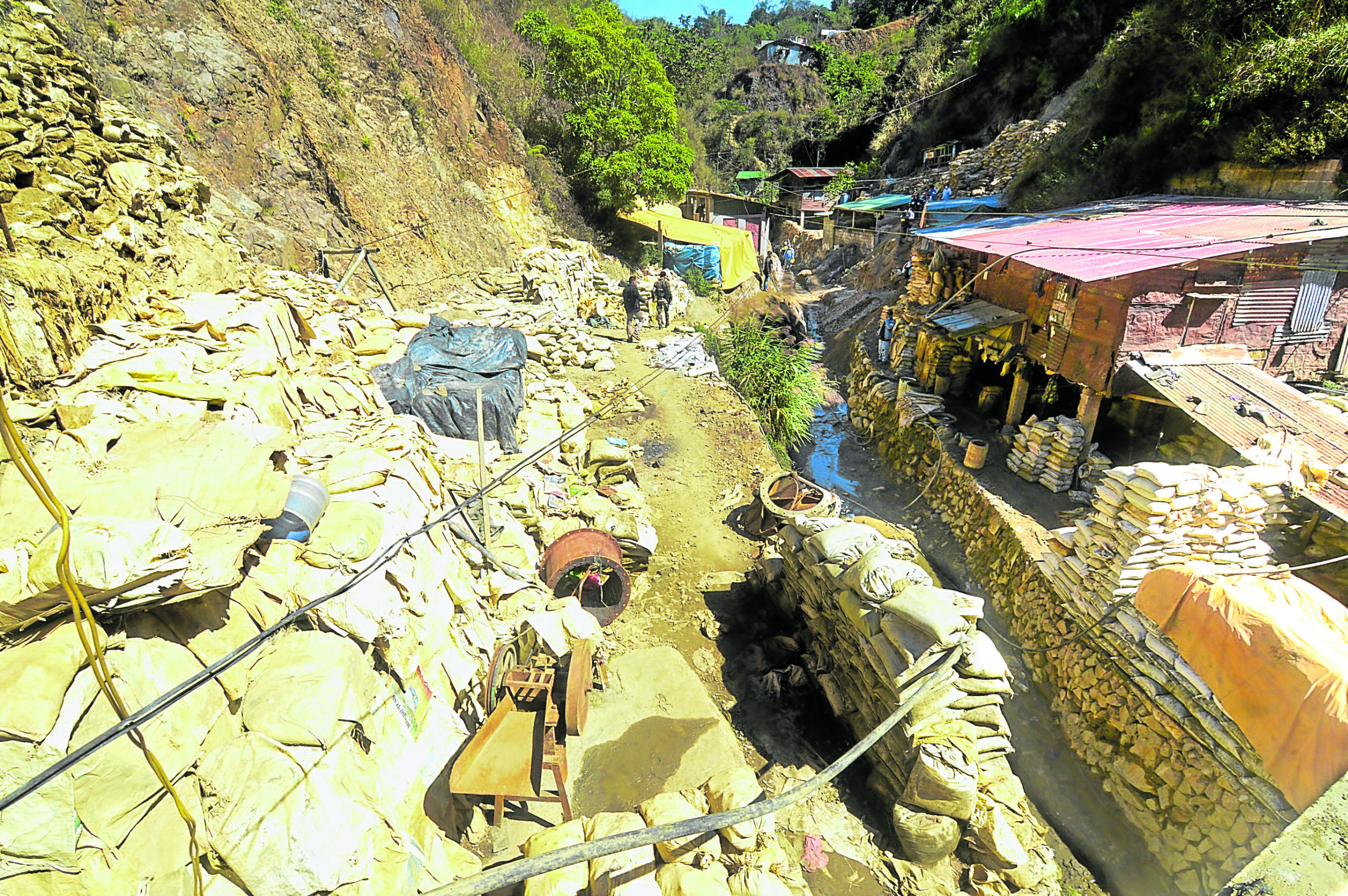
SMALL SCALE BUT PAYING BIG File photo shows an illegal “pocket mining” operation discovered by environment authorities within the land reserved for the Philippine Military Academy in Baguio City. —KARLSTON LAPNITEN
BAGUIO CITY — The amount of gold sold to the Central Bank by small-scale miners, including those in the Cordillera region, grew to unexpected levels last year and the uptrend continued this year despite the prolonged pandemic, an official of the Bangko Sentral ng Pilipinas (BSP) said on Friday.
The BSP’s buying stations in the cities of Quezon, Baguio, Davao, Naga, and Zamboanga purchased a total of 115,800 troy ounces (3,601.78 kilograms) of gold in 2020, which marked a more than 1,000-percent or 10-fold increase from the 10,207 t oz (317.47 kg) the Central Bank bought in 2019, said Joseph Norbert David, director of the BSP’s mint and refinery operations, in an online briefing on Friday.
Among the BSP’s buying stations, those in Baguio and Davao are the closest to the country’s largest gold mines.
“The current volume of purchases this year have exceeded last year’s record,” David said, adding that this could be attributed to the removal of taxes imposed on pocket miners.
In 2019, Republic Act No. 11256, or An Act to Strengthen the Country’s Gross International Reserves, exempted all accredited small-scale miners and gold traders from paying income and excise taxes for gold sold to the BSP.
David said data for 2021 was still being collected and the BSP had yet to determine the major sources of gold sold to it.
Baguio appeared to be the top source of gold during the quarantine period, he said, noting a “marked improvement in (mineral shipments)” from the area.
Safeguards
Pocket mining operations dot the landscape of Baguio City and Benguet province where some of the country’s oldest and largest mining companies are operating.
David said the BSP was transacting only with miners with existing government contracts to extract minerals under the supervision of the Mines and Geosciences Bureau.
The BSP, the main regulator of gold and silver trading in the country, assures sellers of fair prices as it buys gold at prices based on the going rate set in the international precious metals market.
Current rules allow gold to be freely bought or sold, except for those obtained from small-scale mining operations which are required to be sold only to the BSP.
David said the BSP was also prohibited from buying gold from those who would use the sales proceeds “to finance any form of crime or conflict, terrorism, human rights violations, and money laundering activities.”
Survival
President Rodrigo Duterte’s recent decision to accelerate mining development to boost the economy was followed by the formation of nine “Minahang Bayan” (people’s mine) zones early this year in Benguet, Apayao province’s Conner town, Sagada town in Mountain Province, and Abra province.
But these zones have yet to start operations due to the failure of small-scale mining organizations that were earlier granted contracts to submit documentary requirements.
A Benguet miner, who asked not to be named, told the Inquirer over the phone that some pocket miners continued to extract gold without permission “in order to survive after losing their livelihood due to the lockdown.”
David said small-scale miners had to get the necessary permits or contracts to be able to sell to the BSP and avail themselves of the tax exemption.
Also, he noted that studies suggested that small-scale trade was still happening in the black market. To address this, he said, the BSP was studying ways to further improve its buying rates to lure those selling in the black market back to the BSP buying stations.
In the meantime, Environment Secretary Roy Cimatu earlier ordered a crackdown on underground pocket mining operations without government-regulated safeguards here and in parts of the Cordillera.
Cimatu’s order, issued prior to the pandemic outbreak, came following the September 2018 landslide that killed 30 people, including mining families at the Benguet mining town of Itogon. —REPORTS FROM VINCENT CABREZA AND Daxim L. Lucas